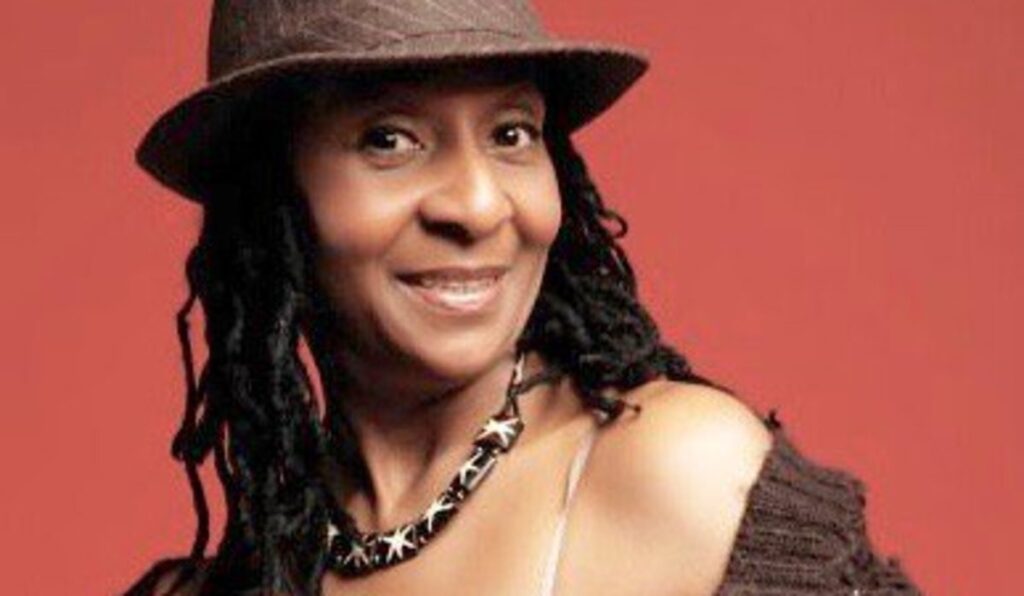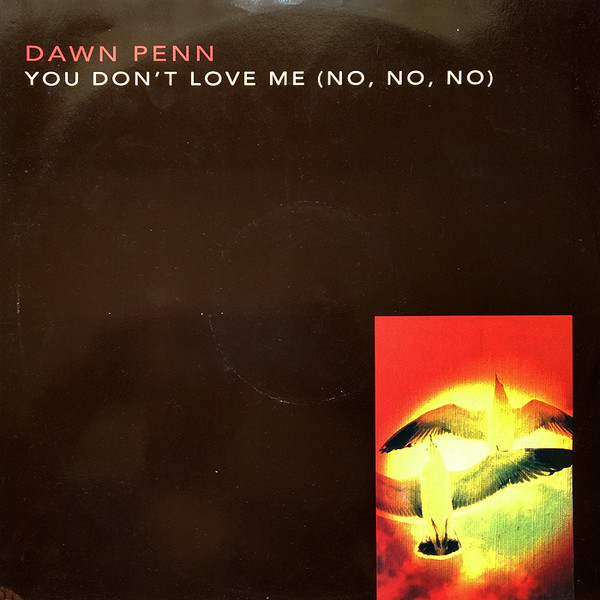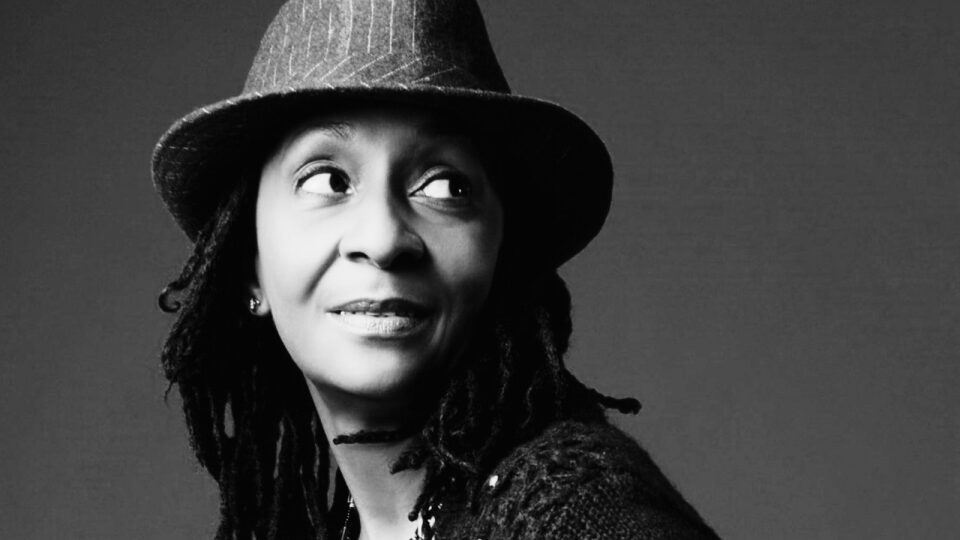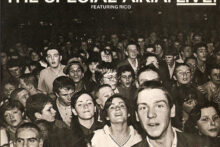In a West London pub, sometime in 1968, Lee Gopthal made a bet with his friend Clive Crawley; he’d cough up ten quid if Clive could get one of his label’s records some much needed radio exposure. Gopthal had co-founded Trojan Records the previous year and, by his own admission, things were slow, so Clive marched down to Broadcasting House clutching a copy of ‘Kansas City’ by Joya Landis, cornered the first producer he could find, and gave it his best salesman spiel. A couple of nights later, Terry Wogan announced, “Now we’ve got a new kind of music from the West Indies called reggae, and here to sing ‘Kansas City’ is Joya Landis.” Clive was a tenner up. Wogan had quoted him almost verbatim, becoming the first DJ to play reggae on Radio 1.
The genre was soon an almost permanent fixture in the UK charts, with Desmond Dekker and Dave & Ansel Collins scoring number 1s. As reggae evolved through the ‘70s from kinky-reggae to roots rockers and on to lovers rock, Susan Codagan, Althea & Donna, Janet Kay and of course Bob Marley all had significant UK hits before the turn of the 80s when 2 Tone resurrected the rude boy swagger of the 60s and channelled it through the prism of post punk.
Over the next few years, reggae proved to be a mainstream commodity. After The Specials hit number one with their swan song ‘Ghost Town’, Musical Youth led the way with ‘Pass The Dutchie’, while Culture Club and Paul Young made their poppy approximations of the genre. In 1984 we caught a glimpse of the UK sound system circuit when Smiley Culture performed ‘Police Officer’ on Top Of The Pops, and ITV screened Sandi Toksvig and Nicholas Parsons having a skank to Barrington Levy in the No73 studio.
By the late 80s, a broader mix of black British music was filling the charts, and reggae became less prominent, though its subtle skanks remained in the DNA of acts like Soul II Soul, Massive Attack and Shut Up & Dance, and it wouldn’t be long until the genre was revitalised and back in the top spot.
In early 1993, ‘Carolina’ – a cover of a lesser spotted Jamaican R&B record from 1960 by The Folkes Brothers – was a surprise hit for dancehall artist Shaggy. Suddenly the floodgates opened, and the charts were once again awash with reggae music. Chaka Demus & Pliers, Louchie Lou & Michie One, Apache Indian, and Aswad were all over the top 10 in the months which followed, which brings us to 1994.

On 9 June, Vic Reeves and Bob Mortimer were probably a little overdressed for the Top Of The Pops studio lights, but they delivered dry one-liners about scotch eggs and Damon Albarn loving spuds with their usual absurd aplomb. Blur, Guns N’ Roses and Brand New Heavies were all familiar names on the show that night, and Wet Wet Wet were only a fortnight into nearly four months of national torment with ‘Love Is All Around’, but then Vic asked Bob who was up next.
Bob: Dawn Penn.
Vic: Who?
Bob: Dawn Penn, it’s Dawn Penn!
Vic: Who?
Good question, Vic.
Dawn Penn was a new name to most in the UK in 1994, yet she owned the stage like a seasoned veteran as she skanked her way through ‘You Don’t Love Me (No No No)’. Little did we know that this lady had been recording since her teens in Jamaica, with a handful of singles during the rocksteady and early reggae era, including covers of Petula Clark’s hit ‘Don’t Sleep In The Subway’, Lulu’s ‘To Sir With Love’, and a few lesser known numbers such as ‘Why Did You Lie?’ and – lo’ and behold – ‘You Don’t Love Me’ from 1967.

Dawn was just 15 when she voiced the original version of ‘You Don’t Love Me’ at Studio One, and she already had a few singles to her name which she recorded with Derrick Morgan and Prince Buster. She’d grown up in a strict Christian household in Kingston, Jamaica, learning classical piano, violin and singing in church, an experience she brought to Studio One that morning in 1967 when she laid down ‘You Don’t Love Me’ in one take under the direction of the legendary keyboardist Jackie Mittoo. Mittoo handled the arrangement while trumpeter Johnny ‘Dizzy’ Moore came up with that iconic two note intro which would later become one of the most emulated basslines in reggae.
As for the topline, Dawn turned back to the church for inspiration. In 2017, she told The Guardian, “We used to sing this old gospel thing ‘Yes, yes, yes, Jesus loves me’ so I sang ‘no no no’” flipping it into a torch song about lost love which became a hit in Jamaica on release; the singer registered it with PRS in Jamaica in 1968. The song, and its writing credits would become a bone of contention for Ms Penn, with various bodies claiming ownership, so let’s have a look at some of the contenders, and its possible influences.
First, the old gospel thing: ‘Jesus Loves Me’ is a hymn which was originally written in 1860, becoming a gospel standard by the turn of the 20th century. It first appears in the novel Say and Seal by Presbyterian writer Susan Warner who asked her sister Anna Bartlett Warner to write a poem to be sung by a character in the novel to comfort a dying child. “Jesus loves me – this I know” it opens, “for the bible tells me so” and you can almost hear Dawn’s silky tones as you read these first lines, the words floating over Dawn’s melody.
However, in 1862, New York musician William Batchelder Bradbury was so taken with Warner’s poem that he set it to music, publishing it in a book of sheet music called Bradbury’s Golden Shower Of S.S. Melodies. The intonation and melody differ from ‘You Don’t Love Me’ but, notably, he added a chorus of “Yes! Jesus loves me” which presumably led to Dawn’s congregation singing “yes yes yes!” So nice, they had to sing it thrice.
Bradbury’s hymn, or should I say Warner and Bradbury’s hymn, would soon become a standard in American schools and church services, and as the recording industry took shape in the early 1900s, countless versions were recorded over the coming decades by gospel, jazz, rhythm and blues and doo wop groups. Country artists made it their own, while gospel congregations tapped into funk and soul, leading to its arguably most famous iteration when Whitney Houston performed it in 1992 film The Bodyguard, directed by Mick Jackson who’d previously petrified the UK with his harrowing nuclear holocaust drama for the BBC, Threads.
If the “old gospel” route is true, then it’s a curious coincidence that the words and melody of ‘You Don’t Love Me’ sound so close to Willie Cobbs’ song of the same name from 1960, a stomping blues shuffle which features the struggling harmonica player wailing “ah ah aaaah, you don’t love me and I know”. Once again this record has a convoluted history which saw it released on three different labels between 1960 and 61. It almost charted but VeeJay Records pulled it after it turned out Cobbs’ song bore more than a passing resemblance to a Bo Diddley b-side from 1955, the scruffy blues-wailer ‘She’s Fine, She’s Mine’ in which Mr Diddley cries out that unmistakable melody, “Ah ah aaahhhhh” before adding, “You don’t love me, I know”.
Bo Diddley was huge, of course, so it’s more than likely Cobbs knew this record, but while this probably isn’t a revelation for anyone who’s read a Wiki page or two, what rarely gets mentioned is an album compiled by folk musicologist Dr Harry Oster who captured a series of blues jams in 1959 at various musicians’ houses, and even a therapy session in Louisiana State Mental Hospital. At violinist Butch Cage’s house in Zachary, Louisiana, Oster recorded a version of Bo Diddley’s ‘She’s Fine, She’s Mine’, only here it’s now titled ‘You Don’t Love Me’. The album came out in 1960, presumably before Cobbs recorded his reworking, but it begs the question: was ‘You Don’t Love Me’ already a blues standard before 1960? Maybe it even predates Bo Diddley’s song.

What we do know is, the song was far from a lost gem waiting to be unearthed after Dawn Penn’s version. Various versions were recorded throughout the 60s between Cobbs’ near miss, and Penn’s Jamaican hit. Rhythm & blues, doo wop and garage bands all had a bash, and most famously Sonny & Cher included a version on their 1965 debut LP Look At Us where it sat alongside their international smash ‘I Got You Babe’. Sonny & Cher’s version was, perhaps fittingly, miscredited as being written by Tommy Raye whose organ-led rendition from 1964 became a mod dancefloor staple in the vein of Booker T’s ‘Green Onions’. Booker T would go on to record his own version in 1968.
So, ‘You Don’t Love Me’ was a recognisable song by 1967, and Studio One’s big boss, Coxsone was a rhythm & blues fan, having launched his recording career in the late 50s with a string of Jamaican R&B and early ska sides for his burgeoning Woldisc label. Perhaps he introduced Cobbs’s song, or Bo Diddley’s song (or whoever’s song it was!) to that session in 1967, or maybe this melody had somehow slinked its way into Dawn Penn’s congregation where they were singing an amalgamation of the blues with Warner’s 19th century stanzas.
Regardless of who wrote it, music wasn’t paying the bills for many artists in Jamaica in the late 60s, and Ms Penn focussed on a career in banking, soon uprooting to the Virgin Islands where her dad hailed from. While she was away, vocalist/producer KC White recorded a version of ‘You Don’t Love Me’ which he renamed ‘No No No’ in 1972. It wasn’t a hit, but quickly caught people’s attention when Big Youth versioned it for the title track of his Screaming Target album which blew up in the UK when Trojan released it in 1973. It later became a punky-reggae anthem, thanks to Don Letts championing it at The Roxy, with its stark dubbing and Big Youth’s ululating cries appealing to the spiky tops and gobby kids. Big Youth plays off snatches of KC White’s chorus, declaring, “You say no? I say yes!” which inverts both punk’s nihilistic tendencies, and Dawn’s own reimagining of her congregation singing “yes yes yes!”
Another version, of the backing track at least, emerged from Joe Gibbs’ studio in Jamaica in 1979. ‘Behind Iron Bars’, a sax-led cool-stepping dub, featured on Chapter 4 of Gibbs’ celebrated African Dub album series. It seems odd that a vocal version wouldn’t exist but I’ve searched high and low, consulted various reggae obsessives, and come up with nothing.
Likewise, a spacious take on the rhythm was recorded in 1979 by Sly & Robbie, leading the dub-loving electronic duo Renegade Soundwave to plunder the bassline a decade later for their Soundclash album opener ‘Blue Eyed Boy’. They’d use it again in 1990 on their groundbreaking In Dub LP which broadened the deconstructive possibilities of dub in electronic music.
In Jamaica, producers Steely & Clevie had been at the vanguard of digital dancehall even before it blew up in 1985 with the King Jammy produced Sleng Teng rhythm. They worked as his studio band, bringing drum machines and synths to the forefront of the Jamaican music industry, and by the turn of the 90s, having opened their own studio, a large portion of the island’s output featured the duo on production duties. They were the modern face of reggae, yet they’d played in various studio bands since the 70s, and had deep knowledge of early reggae, citing Dawn Penn’s ‘You Don’t Love Me’ as a secret weapon when they were on the decks. So when Coxsone announced the forthcoming 30th anniversary of Studio One, they decided to round up some of Coxsone’s old vocalists who were back in town for the event, and make a tribute LP.
Dawn Penn was the first to show up at their studio, by chance, and soon she was revoicing her 1967 classic over Steely & Clevie’s semi-digital reworking of the backing track. In fine style, she laid down what they thought would be a guide vocal, but nailed it on the first take which is what wound up on the record. Various Studio One luminaries followed suit including Alton Ellis, Leroy Sibbles and Marcia Griffiths who previously versioned ‘You Don’t Love Me’ on her 1986 LP I Love Music. The duo hoped they might turn dancehall and ragga fans onto the rocksteady records they’d grown up with, but it wasn’t meant to be. The album Steely & Clevie Play Studio One Vintage dropped in 1992, and it did ok, but they struggled to get radio play, so it was onto their next projects which included producing Billy Ocean.
Meanwhile in New York, Clive Davidson from VP Records realised something special was happening in the mix on the Dawn Penn cut, and got it into the hands of the majors. Atlantic Records picked the single up, releasing it in May 1994, but it didn’t go far in the States. In the UK, however, it sparked a summer of dub.

Dawn was back on Top Of The Pops a fortnight after her debut, ‘You Don’t Love Me’ reached number 3 where it stayed for 3 weeks before being knocked back by The Grid’s ‘Swamp Thing’. Also on the show that week were UK reggae veterans Aswad with their calypso-dancehall bomb ‘Shine’ while, confusingly, Swedish pop quartet Ace Of Base covered Aswad’s ‘Don’t Turn Around’, probably aiming for a reggae ABBA, but inadvertently channelling Bucks Fizz in the land of make believe. The number 2 spot, by the way, was held by Californian band Big Mountain with their Mexican-Irish singer Joaquin McWhinney turning in an unfathomably catchy reggae version of Pete Frampton’s ‘Baby I Love Your Way’. Wet Wet Wet held strong at number one, such was our summer of discontent.
Dawn Penn’s debut album No No No followed soon after on Atlantic, but it didn’t quite live up to the promise of the lead single. On the underground, however, it was another story.
It turns out Dawn had also revoiced the song at Jammy’s back in 1992, so the vocal was passed on to jungle pioneer John Aymer who laced it with Amens, and Greensleeves Records released it as the ‘Reel II Reel Junglist Lick’, tearing up raves for the rest of the summer. Over in France, vocalist Mèlaaz released ‘Non Non Non’, a hip hop meets reggae version produced by the late Phillippe Zdar, while Italian label Discomagic released an ill-advised Euro-house version by the mysterious Roots Jay.
Into the 21st Century, and the song crossed into MTV Base territories. Eve teamed up with a couple of Marleys (Stephen and Damien) for ‘No, No, No’ on her Scorpion LP, Ghostface Killah rapped over the song, wholesale on ‘No No No’ from 2007, and Rihanna covered it on her debut album. During her Sasha Fierce tour, Beyoncé segued from her Sean Paul collab ‘Baby Boy’ into a faithful cover of ‘You Don’t Love Me’, a tradition which continued up to her Homecoming concert film shot at Coachella and featuring a marching band chanting “THE PEOPLE!”, a line snatched from U-Roy’s ‘Wake The Town’, as sampled by Steely & Clevie on the 1994 hit version.
Most recently, The Specials borrowed the bassline for ‘Ten Commandments’, their collaboration with activist Saffiyah Khan. It was bassist Horace’s idea. “We used the song as our walk on music” Horace explains, admitting he didn’t even know it had charted in the 90s, “it was just a song that was always there somewhere in the background.”
In the 30 years since ‘You Don’t Love Me (No No No)’ reached number 3, reggae records have continued to pop up here and there in the UK chart, but never to the extent of the summer of 1994, or the decades prior. The last time we had a significant reggae presence in and around the top 10 was in the spring of 2004 when Sean Paul reached number 6 with a version of ‘I’m Still In Love With You’ by Alton Ellis, which was another vintage track recreated by Steely & Clevie. Beenie Man reached the top ten with ‘Dude’, and Black Eyed Peas had a bash at bashment when they invited UK dancehall legend Tippa Irie to guest on the samba sampling ‘Hey Mama’. Since then the hits have been few and far between, save for a few Sean Paul EDM tracks, or oddities like Lily Allen hitting the top spot with ‘Smile’ which was based on another Studio One record, ‘Free Soul’ by The Soul Vendors. She also borrowed from ‘You Don’t Love Me’ on her debut LP but, as you might assume, Dawn Penn wasn’t credited.
But that doesn’t diminish the beauty of ‘You Don’t Love Me’. It does feel like it’s always been there, even when I first heard it. I sympathise with Ms Penn over her lack of remuneration, thanks in part to the nebulous writing credits issue, but I’ve also seen how people react when she performs it, one time first hand from behind the decks when I was booked as her DJ, and I was so mesmerised by her performance that I forgot to wheel up the track as she started singing her opening “no no no”s. I did a rewind eventually, eight, in fact.
I hope the song continues to take Dawn around the world, and a new generation of kids fall in love with it, just as we did 30 years ago.




